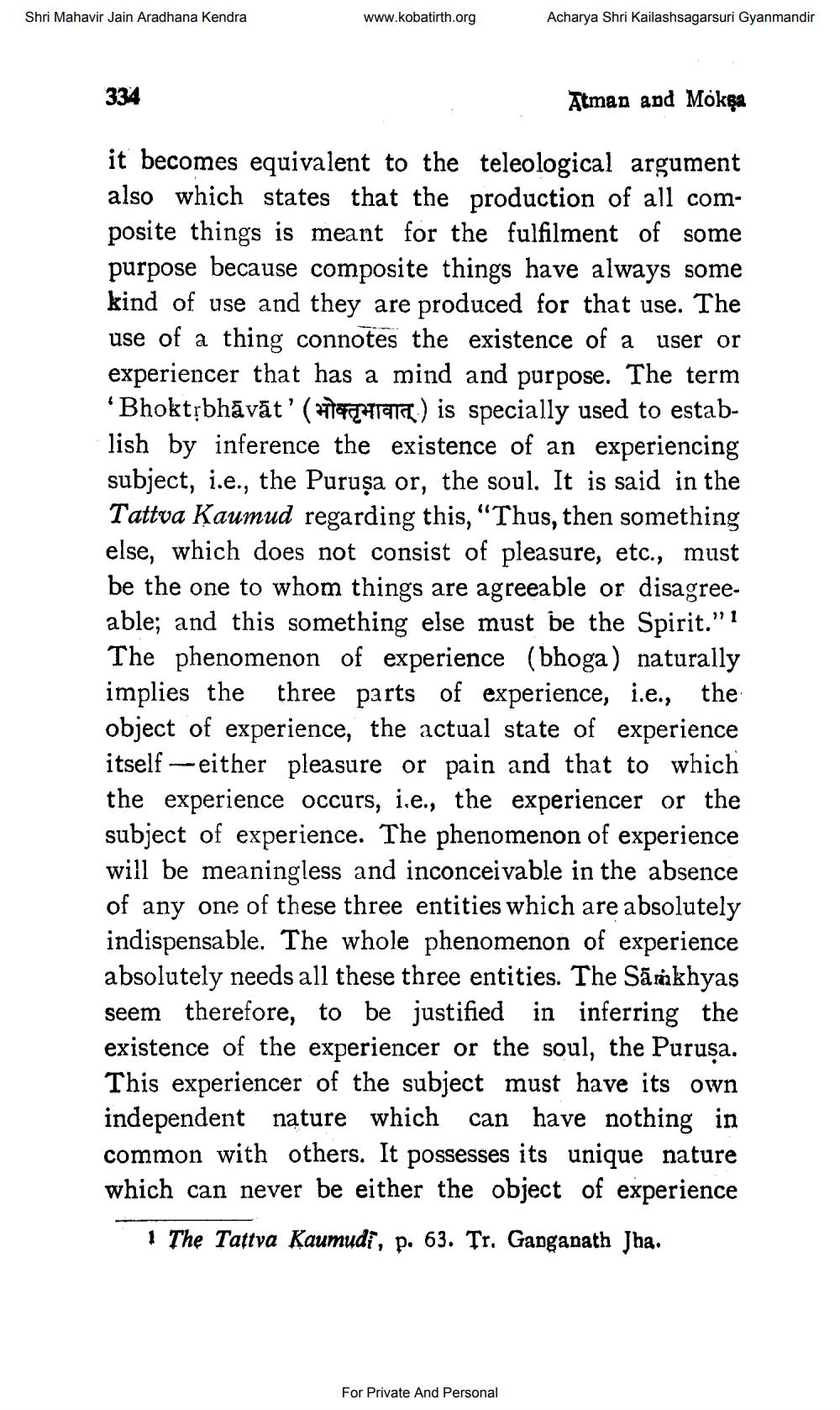________________
Shri Mahavir Jain Aradhana Kendra
334
www.kobatirth.org
Acharya Shri Kailashsagarsuri Gyanmandir
For Private And Personal
Atman and Mokṇa
it becomes equivalent to the teleological argument also which states that the production of all composite things is meant for the fulfilment of some purpose because composite things have always some kind of use and they are produced for that use. The use of a thing connotes the existence of a user or experiencer that has a mind and purpose. The term 'Bhoktṛbhāvāt' () is specially used to establish by inference the existence of an experiencing subject, i.e., the Puruşa or, the soul. It is said in the Tattva Kaumud regarding this, "Thus, then something else, which does not consist of pleasure, etc., must be the one to whom things are agreeable or disagreeable; and this something else must be the Spirit."" The phenomenon of experience (bhoga) naturally implies the three parts of experience, i.e., the object of experience, the actual state of experience itself either pleasure or pain and that to which the experience occurs, i.e., the experiencer or the subject of experience. The phenomenon of experience will be meaningless and inconceivable in the absence of any one of these three entities which are absolutely indispensable. The whole phenomenon of experience absolutely needs all these three entities. The Samkhyas seem therefore, to be justified in inferring the existence of the experiencer or the soul, the Purusa. This experiencer of the subject must have its own independent nature which can have nothing in common with others. It possesses its unique nature which can never be either the object of experience
1 The Tattva Kaumudi, p. 63. Tr. Ganganath Jha.




